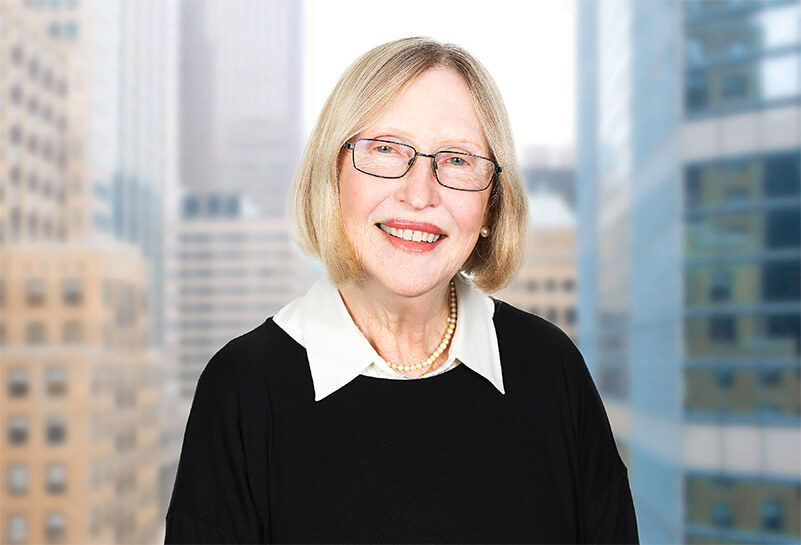Lawyers' Risk Management Newsletter, March 2021
Lawyers' Risk Management Newsletter, May 2021
-
Legal Development 20 May 2021 20 May 2021
-
North America
-
Professional Practices
In this article, we discuss how the Rules of Professional Conduct governing lawyer advertising apply when lawyers seek to pay for lead generating services that recommend a lawyer, and how some jurisdictions have and are likely to discard such rules.
Paying for Leads – The Changing Face of Lawyer Advertising Rules
In this article, we discuss how the Rules of Professional Conduct governing lawyer advertising apply when lawyers seek to pay for lead generating services that recommend a lawyer, and how some jurisdictions have and are likely to discard such rules.
At the beginning of this year, New York State Bar Association (“NYSBA”) Opinion 1213 reaffirmed the rule that a lawyer may not participate in an internet lawyer-client matching service that vouches for the recommended attorney. Opinion 1213 noted that under Comment [1] to Rule 7.2 a lawyer may not pay for an internet based client lead “that states, implies, or creates a reasonable impression that it is recommending the lawyer, . . . or has analyzed a person’s legal problems when determining which lawyer should receive the referral.” Opinion 1213 also reviewed NYSBA Opinion 1132 (2017) (addressing Avvo), and determined that an online service matching clients with the “best traffic lawyer for their case” has the same problems that caused Avvo’s online lawyer matching service to violate Rule 7.2(a):
Specifically, the online service here matches the potential client with an attorney based on factors that include attorney success rate, response rate, and customer service rating. The website states that the potential client is not just matched to any lawyer, but to an “experienced traffic attorney” with a “great track record in the court where the ticket will be contested.” The service also states that it has collected data and knows which lawyers are successful and which are not in each court served.
The online lawyer matching service here in issue plainly strives to give potential clients the impression that it has selected the “best” or “right” lawyer for the potential client’s matter, and that the lawyer selected is preferred over other candidates in the service’s database. Based on these express and implied representations, the service appears to vouch for a matched lawyer’s credentials, competence and effectiveness, making the communication a prohibited recommendation. Accordingly, under Rule 7.2(a), the inquirer’s payment for participation in the online service would constitute a prohibited referral fee, not a permitted marketing fee.
Opinion 1213 highlights that one of the major differences between an ethical and unethical internet-based client lead is the presence of an intermediary allegedly evaluating a prospective client’s needs and directing him or her to the “right” attorney.
New Jersey takes a similar approach. Ethics Opinion 43 (2011) explained that it is unethical to participate in a service where “marketers who claimed to find the ‘right’ attorney for consumers, who asserted that they will provide an attorney suitable for the consumer’s legal needs, or who misled consumers (by commission or omission) as to the basis for the selection of an attorney were considered to be impermissible referral services.”
Historically, Arizona took the same approach (see Opinion 06-06 (2006)) finding that subjective judgments about an attorney—as opposed to a directory of recommendations—was impermissible under Rule 7.2. From the same era, see Tex. Ethics Op. 573 (2006); Wash. Ethics Op. 2106 (2006); Ohio Ethics Op. 2001-02 (2001); South Carolina Ethics Advisory Op. 01-03 (2001).
Importantly, The Arizona Supreme Court eliminated, among others, Rule 7.2, effective January 1, 2021. Accordingly, marketing services like those described in these opinions are likely now permissible in Arizona, provided that they do not contain misleading statements in violation of Rule 7.1. And Arizona may not be alone in this new approach. At least Missouri, Oregon, and Utah may be following suit. The Missouri Bar explained that advertisement rules need to be re-examined because they “were written at a time when advertising (e.g., television and Yellow Pages) was easily distinguishable from solicitation in person or in writing. Since that time, new technologies have blurred this distinction by facilitating communications resembling generic advertisements, but which instead target very precise markets of potential clients.” Joint Task Force of the Supreme Court of Missouri and The Missouri Bar, Future of the Profession Report (2016).
The Oregon Bar recommended amending “current fee-sharing rules to allow fee sharing between lawyers and lawyer referral services, with appropriate disclosure to clients.” Oregon State Bar, The Future of Legal Services in Oregon (2017).
The Utah State Bar reasoned that allowing paid referrals will permit clients to find legal services and lawyers to find new clients. Utah State Bar, Report and Recommendations from the Utah Work Group on Regulatory Reform (2019).
Most recently, the Chicago Bar Association recommended the same change, stating that Rule 7.2 “is unnecessarily restrictive and should be allowed so long as the lawyer does not violate the core principles of the Rule 7.1.” Chicago Bar Association/Chicago Bar Foundation, Report of the Task Force on the Sustainable Practice of Law & Innovation (2020).
Lawyers and law firms need to stay abreast of the rules for the jurisdiction where they seek to market themselves. Although an online matching service that vouches for or recommends the “right” attorney may be more and more widely accepted as a permissible marketing tool for attorneys, and marketing companies are aggressively trying to sign up law firms to these arrangements, they are not yet permissible in every jurisdiction.
The newsletter is available to download as a file here.
End
